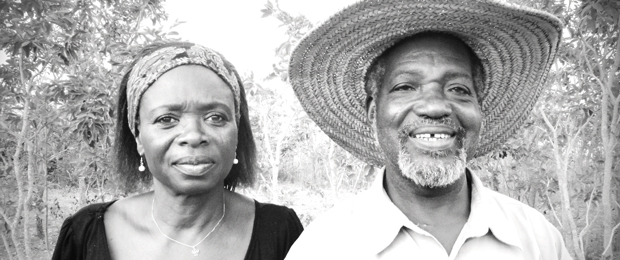By Christiane Kliemann
At the end of a conference like this, there might be as many impressions and insights to take home as there are participants, and so it is almost impossible to nail this rich variety down to a few one-dimensional bullet-points. What seemed to unite the findings of the various reporters, however, was the perception that the multitude and diversity of the represented approaches and perspectives can be seen as a quality in itself and an essential strength of the degrowth-concept. Translating this strength into action is maybe best expressed by a quote randomly caught up by one of the observers: "You have to change value systems and pratices simoultaneously".
Critically reflected was the fact that the majority of the participants were white middle class and that the borders between e.g. artistic and scientific approaches were still present at the conference. It was also mentioned that issues like the refugee struggle and geopolitical conflicts such as the one in Gaza did not find room at the conference, although they would have added important perspectives to the degrowth-discourse. Among the concrete things to take home from the conference are definitely the results of the GAP-process from the various working groups which are supposed to continue and to be taken on to the next Degrowth-Conference.
The Closing panel had the difficult task to articulate the more concrete and tangible outcomes, one example being the successful entry of the degrowth-concept into the German "Postwachstum"-discourse. With regard to the relationship between degrowth and capitalism, it was emphasized that in one of the previous Degrowth-Conferences it was made pretty clear that degrowth and capitalism are not compatible, which is not a small thing to take home also from this conference.
In relation to "Degrowth as a movement", it was underlined that at least the media perceives the degrowth-community as such, and, again, that diversity is a strength and not a weakness, as long as this is combined with solidarity and alliances with other global emancipatory social and ecological grassroots-movements. Tadzio Müller´s earlier perception that, at the conference, "degrowth is speed-dating other movements" was countered by Christopher Laumanns saying that degrowth and the climate-movement were in fact married. Degrowth being an idea, an action and a practice, that fits in with and inspires other existing movements, and can be a basis for exchange with other actors on the ground. Once we identify ourselves with system change and anticapitalist struggle and the movement to defend the commons there is suddenly a big movement towards systemic alternatives and changes.
Lucia Ortiz agreed that the Friends of the Earth, and degrowth share many principles which can be advanced by joining the "struggle to defend people´s territories in order to become free from fear and the politics of fear, and to make solidarity a common good." She invited the degrowth-community to join the campaign to dismantle corporate power, as the struggle to fight large corporations entails many principles shared with degrowth. With regard to Germany, local fights against lignite were also mentioned as perfect examples for necessary alliances between degrowth an other movements, as lignite produces only 25% of German electricity but 50% of the emissions, and it destroys landscapes and homes of people.
Giorgios Kallis called for civil disobedience, changing institutions and finding new forms of democracy and new policy ideas like the unconditional basic income. He also mentioned the important challenge to communicate the concept of degrowth to the other 99 percent of society who are still untouched by degrowth ideas. And, last but not least, the task to make the scientific outcomes of the conference available to the broader scientific community. However, the very essence of this panel and maybe the conference as a whole couldn´t have been expressed any better than with the closing sentence by Christopher Laumanns: "Choose your struggles, look after each other and have fun!"

The topic of population growth is often omitted from any debate regarding environmental impact in all academic circles ranging from classical to heterodox. While it is undeniable that the global population is increasing and will continue to increase for some time, no serious address towards the seemingly obvious relationship between population growth and environmental degradation is directly di...

Attempts to integrate economics and ecology have been based on one of three strategies: (1) economic imperialism; (2) ecological reductionism; (3) steady-state subsystem. Each strategy begins with the picture of the economy as a subsystem of the finite ecosystem. Thus all three recognize limits to growth. The differences concern the way they each treat [...]

Without trying to give definitions of growth or degrowth everybody knows anyway, I would like to emphasize that these phenomena were always subject to discussions. Even a non-economist knows that it is impossible to talk about growth without mentioning ideas like increases in production factors, industrialization or economic development. Any increase has to come to a [...]